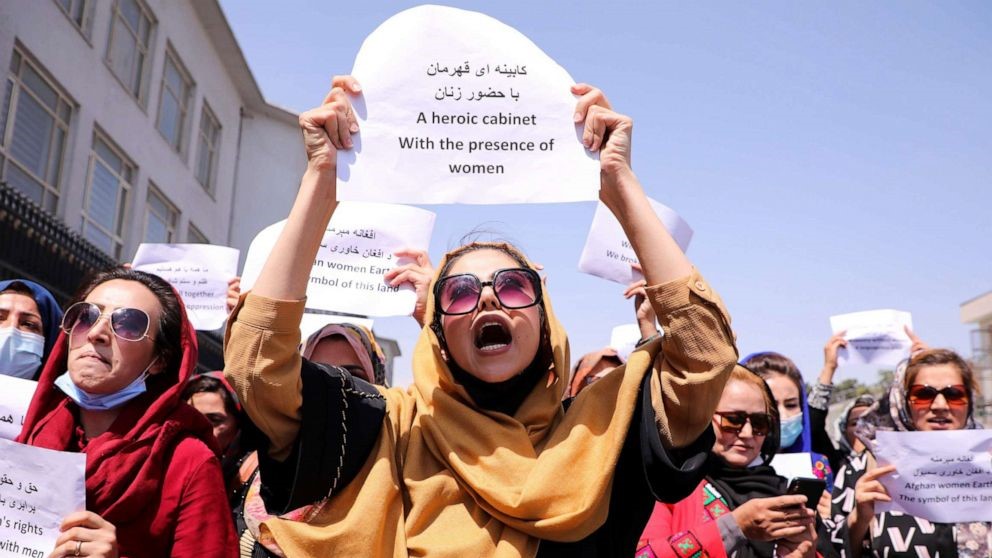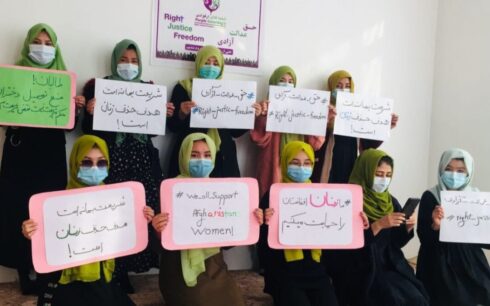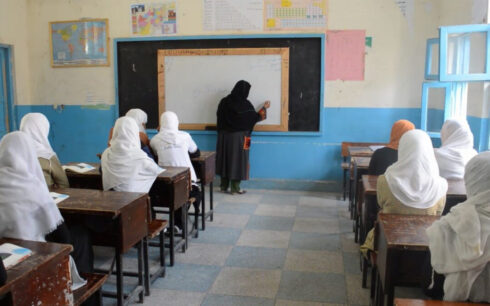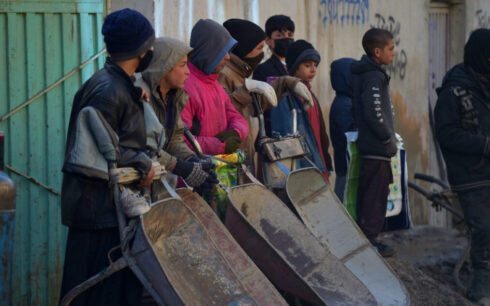The UN Special Rapporteur on the rights to freedom of peaceful assembly and of association, Clément Nyaletsossi Voule, has described the situation in Afghanistan as “dire gender apartheid” imposed by the Taliban.
Addressing a press conference in New York on Friday, Voule said there are too many examples that demonstrate how the suppression of rights and the failure to listen to the communities and social movements in the context of conflict prevention and peacebuilding led to failed peace processes.
He said one “example” was Afghanistan. This was in reference to the US-Taliban deal, commonly known as the Doha Agreement, signed in February 2020. Multiple rounds of negotiations were held but the government of the time was excluded from the talks and women were sidelined.
“Women completely sidelined from the peace process led to today’s dire situation of gender apartheid imposed by [the] Taliban who were brought through closed doors and let me be honest with US-Taliban peace deal.”
Meanwhile, the human rights defenders echoed their criticisms over the violation of women’s rights in Afghanistan and urged the international community to recognize gender apartheid under the Taliban rule.
Masouda Khoistani, a women’s rights activist, stressed that the international community should take practical steps to prevent the Taliban from imposing restrictions on women.
“You cannot prevent the imposition of restrictions by an extreme terrorist group through statements and slogans,” she said. “Please become united and rescue the Afghan women from the restrictions of this terrorist group.”
The Taliban’s edicts, which mainly come from its supreme leader’s office, have restricted women and girls from access to education, work, free movement, and visiting parks, gyms, and other public spaces.
The Taliban’s repressive policies on women have been met with strong criticism from the international community—with human rights watchdogs stressing the need to recognize “gender apartheid” as part of the current rule in Afghanistan.
Tamana Zaryab Pariani, who has been holding a sit-in in Germany in a bid to draw the attention of the world to the vulnerable situation of women in Afghanistan, said that she will organize protests in various cities in the country.
“Our protest which is set to convey the message for recognition of gender apartheid [under the Taliban] will go from cities to cities. It includes people who believe in freedom, justice, and equality and protest the crimes that happen in our land,” she said.
The Taliban have detained and tortured many women’s rights activists who protested in reaction to the restrictions imposed on the women. Two women protesters Neda Parwani and Zholia Parsi are two women who have been in prison, along with their families, for almost a month after being arrested in their homes.





